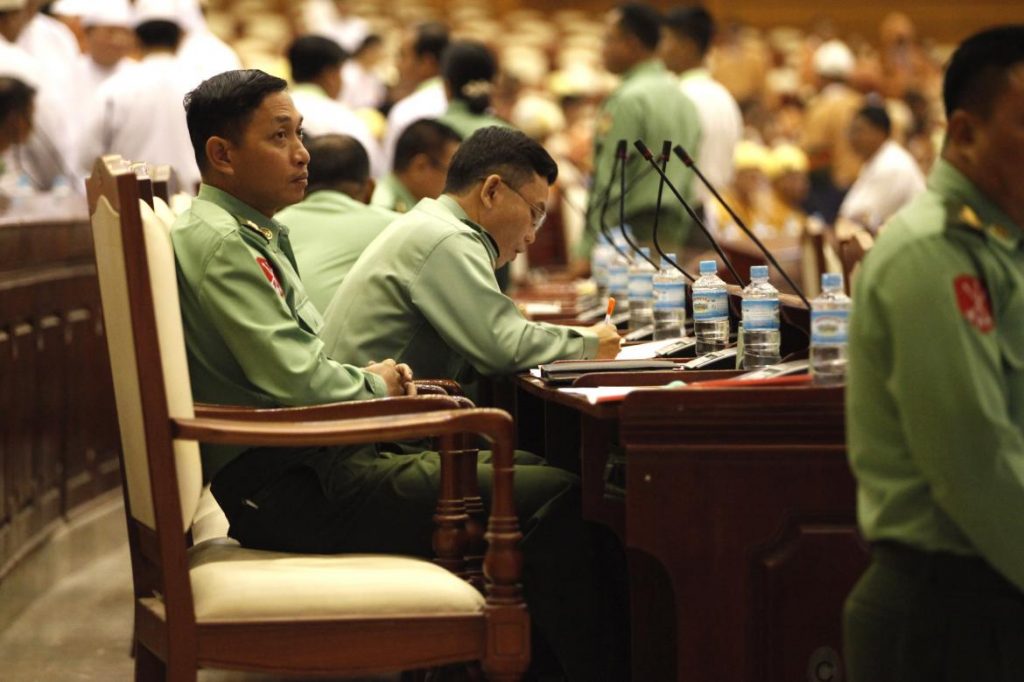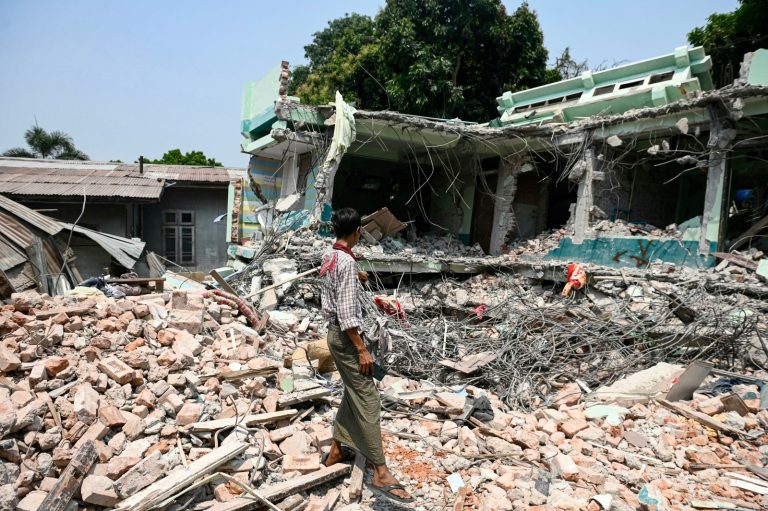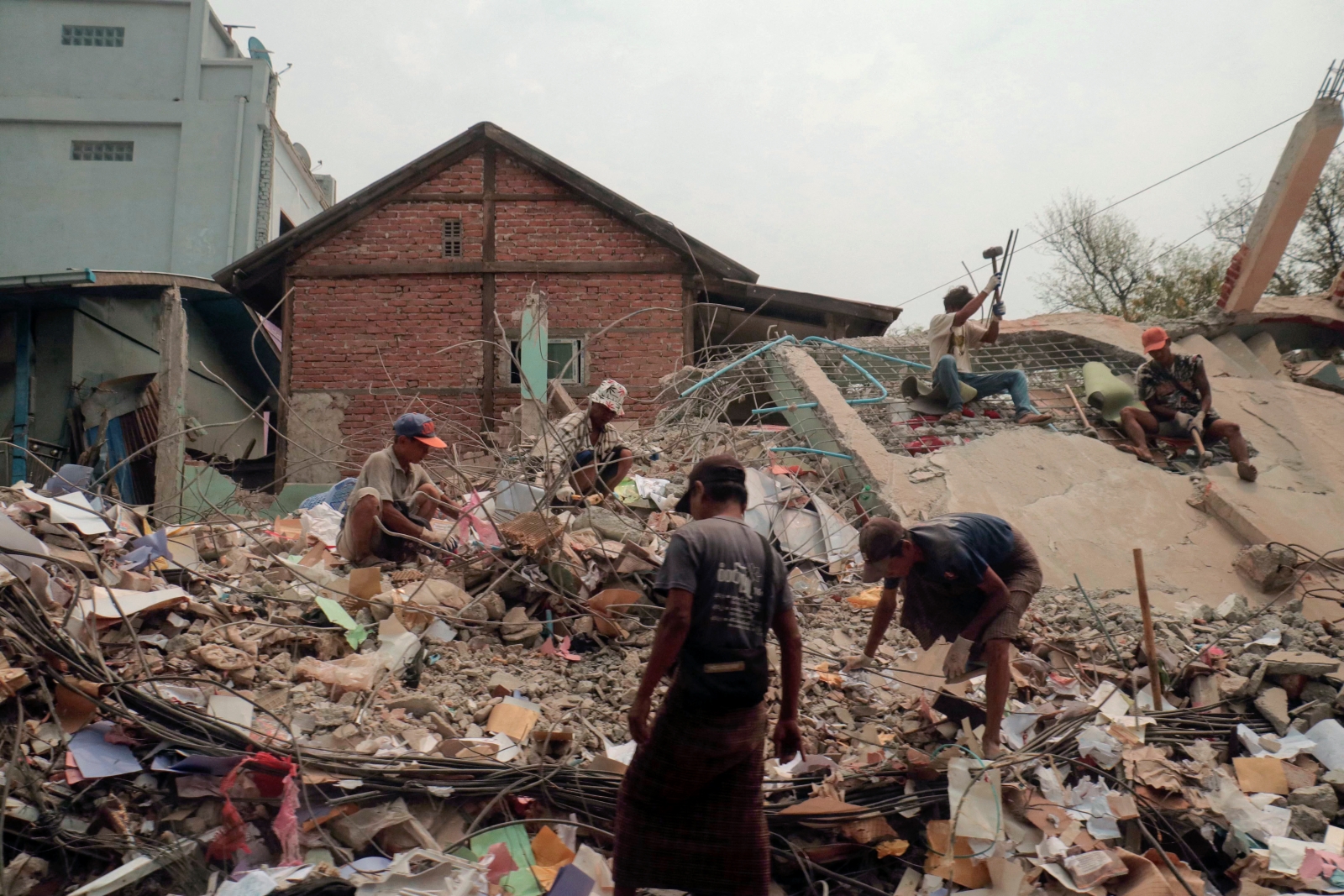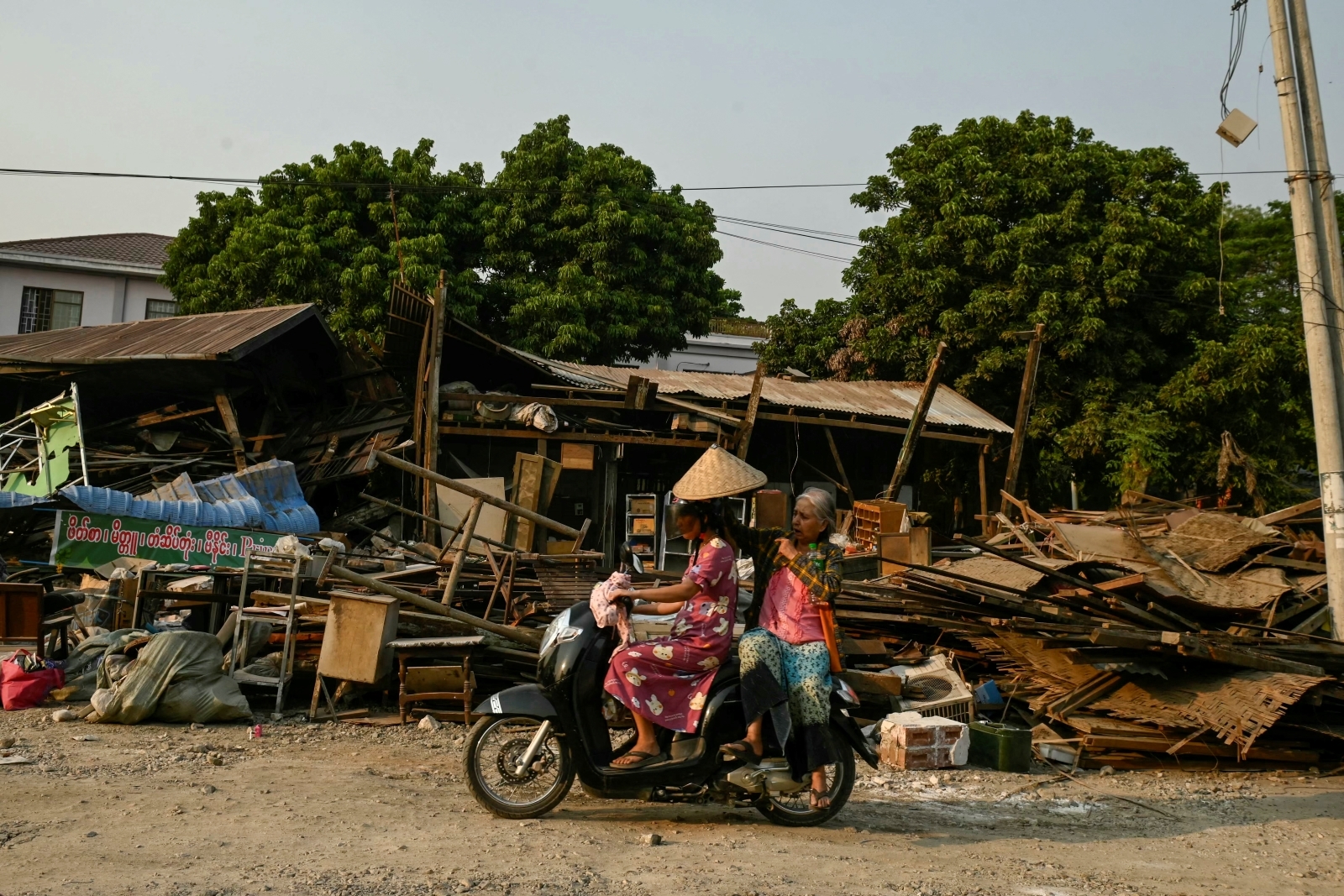By NYAN HLAING LYNN | FRONTIER
NAY PYI TAW — U Win Myint has rounded out the end of the latest parliamentary session by quashing suggestions of constitutional reform in the near future, telling reporters that the government acknowledged that it did not have the power to amend the charter for the time being.
At a Friday meeting with the press at Union Parliament’s Zabuthiri Hall, the Pyithu Hluttaw speaker said that the government would instead focus on national reconciliation and a “restoration of internal peace”, as the government attempts to craft a sustainable end to decades of ethnic conflict in Myanmar.
Win Myint, who is also a member of the NLD’s central executive committee, added that the government and National League for Democracy leader Daw Aung San Suu Kyi remained committed to amending the military-drafted 2008 charter during the current term of parliament.
“It’s true there are limitations and hindrances in our efforts,” he said. “But relentless effort will be used toward realising constitutional amendments within the current parliament.”
Support more independent journalism like this. Sign up to be a Frontier member.
The NLD, having won a landslide victory in the 2015 election, is unable to reform the constitution without the support of Union Parliament’s military bloc, which controls a quarter of the seats in both houses. Many sections of the charter also require a national referendum with the support of more than half of all eligible voters before amendments can be enacted.
During the term of the previous government, Senior-General Min Aung Hlaing repeatedly said the military considered itself responsible for defending the constitution from change, while conceding some reform to the charter would be foreseeable a decade or more in the future.
Last month, the Tatmadaw chief appeared to be more accommodating toward the NLD’s push, telling media that if ethnic conflict ended in Myanmar, parliament’s military bloc would vote in accordance with “the wishes of the people”.
Since the new parliament took office at the end of January, the military has been involved in a number of clashes in Kachin, Shan and Rakhine states, leading to the displacement of thousands of civilians.
Public support
In 2014, the NLD launched a petition drive with the 88 Generation Peace and Open Society, gathering more than 5 million signatures supporting the abolition of Section 436 of the constitution, which guarantees the military’s veto on charter amendments.
Win Myint, who was part of the petition campaign’s tour of the country, said that current political rallies prevented the current parliament from acting on the NLD’s earlier pledge to end the Tatmadaw’s political role.
“We want it so much so that Daw Aung San Suu Kyi and I went around the country and called for it,” he told reporters on Friday. “But there are some things where you can do as you wish and there are other things where you can’t. If you try to do it knowing that you can’t, the result will not be good.”
Last July, parliament voted on a number of proposed constitutional amendments at the behest of former Union Parliament Speaker Thura U Shwe Mann, a confidante of Suu Kyi now serving as chair of the Legal Affairs and Special Cases Assessment Commission.
Nearly all of the amendments were struck down after military lawmakers refused their support, including a proposal which would have rescinded a rule that bars Suu Kyi from contesting the presidency.
Parliament will be in recess for the next month, with lawmakers to return to Nay Pyi Taw in July.







